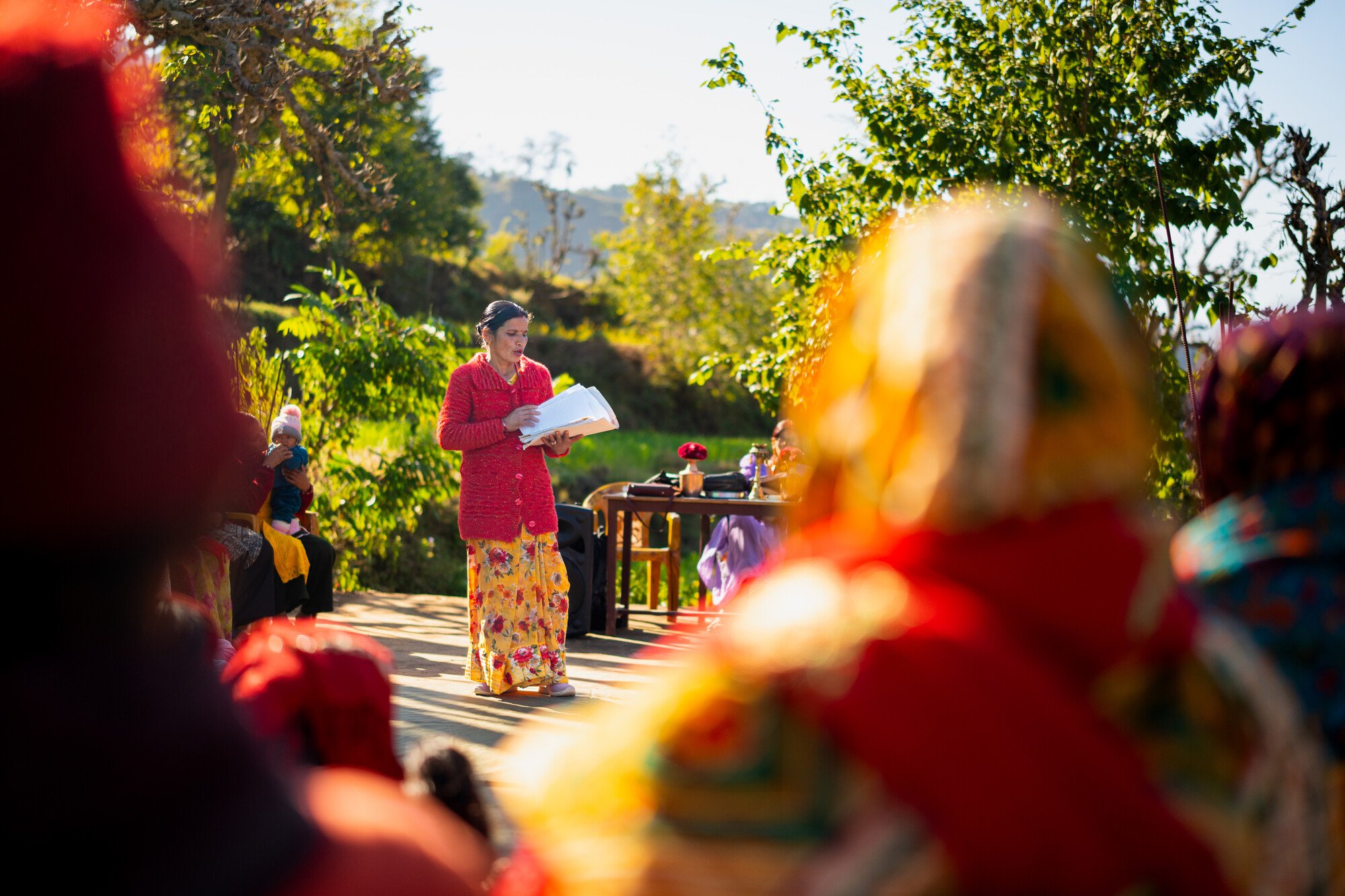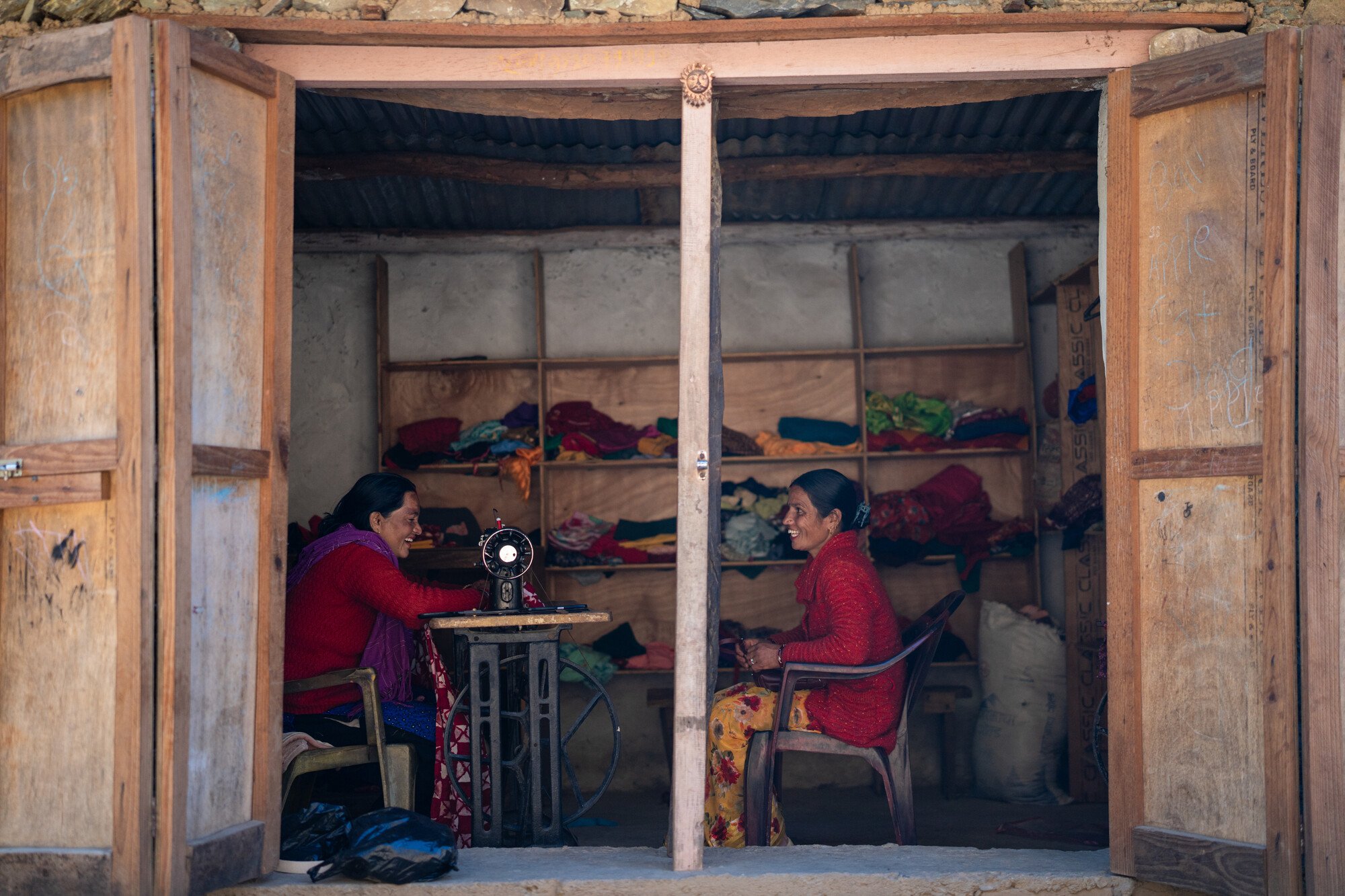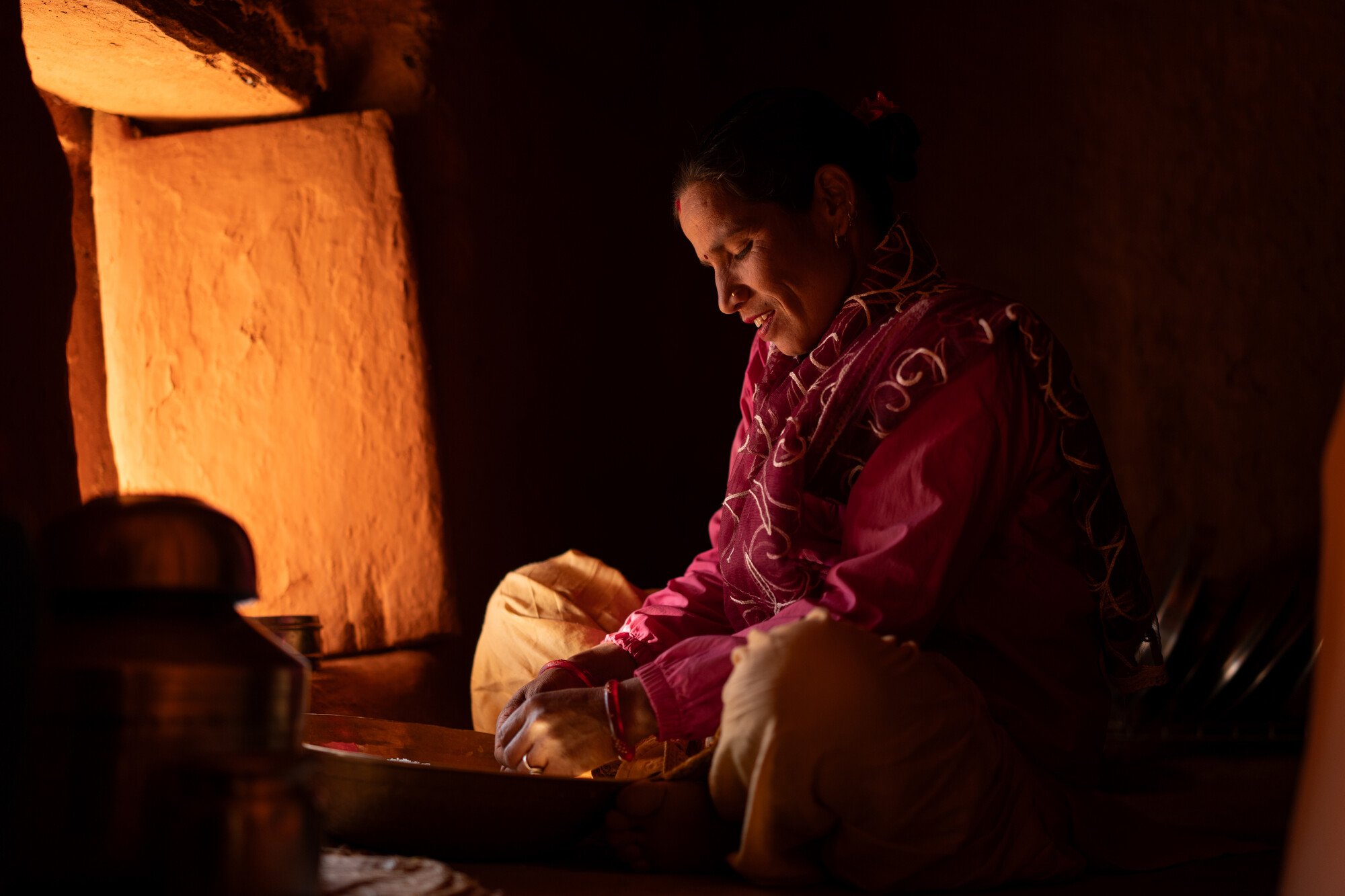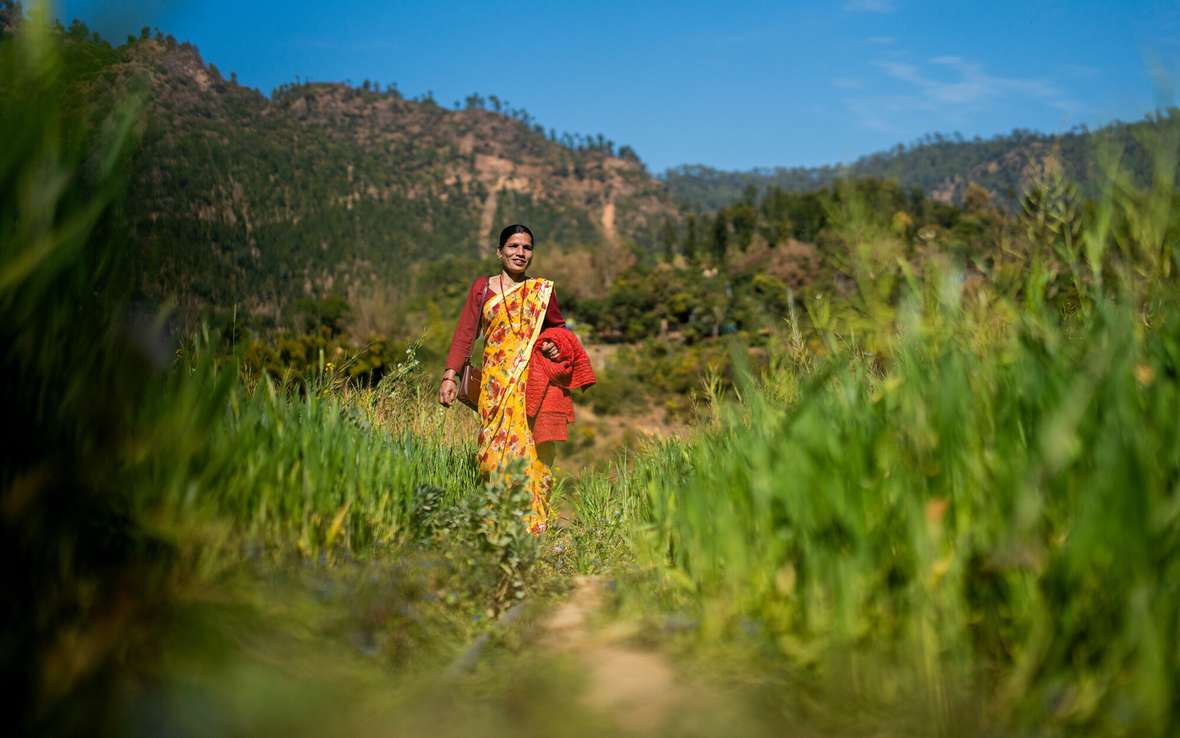A woman in Nepal delivers for her rural community.
The recently constructed narrow dirt road winding into Haldyaam in the mountainous region of western Nepal came at an unexpected price: It knocked out the supply of water serving the village.
“We desperately needed the road, but the construction ruined our water pipes,” explains Indra Devi Bhul, a 41-year-old farmer in Haldyaam. “For a time, we had to rely on the nearby river, a difficult burden.”
For two months in 2024, she and her neighbors had to walk to the river (a 30-minute round trip) and carry water back for cooking and bathing, watering their vegetable gardens, and caring for their livestock.
Her representative in the local government, Pramila Devi Bhul, took action to repair the water system. Despite the fact that the municipal budget had recently been drastically cut, her advocacy in ward and municipal meetings secured 300,000 rupees ($2,161) for repairs.

“Pramila made our concerns heard in the local government. She has brought back water in our pipes again,” Indra says.
Delivering for her community
Pramila Buhl is a ward member of Ganyapdhura Rural Municipality-3 in Dadeldhura district of Sudurpashchim Province in far western Nepal. It’s a place remote enough that when visitors arrive by car, they have trouble navigating the new dirt road full of livestock. Children come from their homes to guide animals away off the road; cars are a rare sight, so they are also curious.
Pramila is a petite woman of 37 years, soft spoken but always willing to be vocal about issues important to her community and close to her heart.
When she was young, she saw her father's role as a community figure, with people seeking his assistance and listening to his public speeches. This ignited her own desire to become a leader.
“However, my dream was long forgotten as I married young and was soon overwhelmed by household responsibilities including raising my two children,” recounts Pramila.
As her days became busy taking care of her family and farming a small plot of land, Pramila got involved with a farmer cooperative. She eventually became the treasurer, thanks to her ability to read and write, which raised her profile in the community.

For the local elections in 2017, she was approached to take on the position of a ward member representing the Dalit minority in the community. Dalit people occupy the lowest rung in traditional South Asian hierarchy, and have been historically subjected to widespread discrimination and social exclusion. Pramila was skeptical about taking on this role, but her husband encouraged her to accept the post. She became an uncontested Dalit ward member for Ward No. 3 of Ganyapdhura Municipality for the first time in 2017.
“At the time, my children were young, and I feared the responsibility I was being given. However, my husband and family were supportive,” says Pramila.
Pramila’s husband, Govind Bhul, works as a teacher at a private school nearby. “I take care of household chores including looking after our daughter when Pramila is busy and must attend meetings. Our entire family including my mother and father support my wife’s role,” he says.
Learning the skills to be a leader
“During my first tenure, I had limited knowledge and skills,” Pramila says. “The decision making was dominated by male leaders …I did not have the knowledge to make substantial contributions or articulate the community’s demands. I did not know the process and I was not confident in public speaking.”
It was towards the end of this tenure that Pramila connected with the Women’s Leadership Platform, which leads discussions on social, economic, and political issues affecting women leaders. Oxfam supports the Women’s Leadership Platform in Nepal as part of its commitment to promoting women leaders because they propose policies that fight inequality and poverty and benefit women, girls, people living with disabilities, and other overlooked minorities.
Pramila participated in leadership training, learned public speaking skills and about gender-based violence and government policies aimed at eliminating violence against women. She also got specific training in the local-level planning process, proposal writing, and budget planning.
Pramila was successful in earning the goodwill of the people in her community during her first tenure as ward member as she successfully allocated budget of 400,000 rupees ($2,882) for tailoring training and sewing machines for 18 women in the ward.
Reshma Kumari Nepali, one of the recipients, has since established a tailoring shop near the main road. “The training and sewing machine provided by the ward are my primary income source,” Reshma shares.
Working with women in the community and learning about the ways local government can help them has led Pramila to personally visit people in their homes and share information about training programs, subsidies for Dalit farmers, and scholarships for students.
This humble approach to service has endeared Pramila to her community. She was re-elected to represent her ward in 2022. She was also elected to the municipality level Executive Committee, which has provided her with access to budget allocation and planning meetings.
Support for farmers
In rural Nepal, seasonal male migration for work abroad makes agriculture primarily a woman's responsibility. Due to their care work burdens at home, women primarily participate in small-scale, less time-intensive farming practices.
Harvests were inadequate in this dry, hilly area, with only one planting season possible after monsoon rains, until the ward introduced a water lifting irrigation system.
The river, though close, was useless for irrigation due to the lack of channels. Carrying water from the river uphill to the farmland was not feasible. Fields remained barren, and residents had no choice but to wait for the monsoon season’s rainfall.

In the 2023-2024 budget year, Pramila successfully lobbied for allocation of 700,000 rupees ($5,044) for an irrigation system that pumps water up from the river to nearby fields, storing it in a cement water tank. The new irrigation system ensures that her people can cultivate wheat, mustard, and rice even during the dry season.
“Now, the water lifting system allows us to plant crops throughout the year,” says farmer Bimala Deuba. “As you can see, our wheat fields are thriving even in this dry season.”
“The difference is significant. We no longer have to buy food because our harvests last the year. We value Pramila's leadership on this.”
Pramila Buhl’s accomplishments in her community inspire her to continue representing her constituents.
“I hope to keep serving my people. I want to be elected to more decision-making roles so I can better serve the people,” smiles Pramila.



